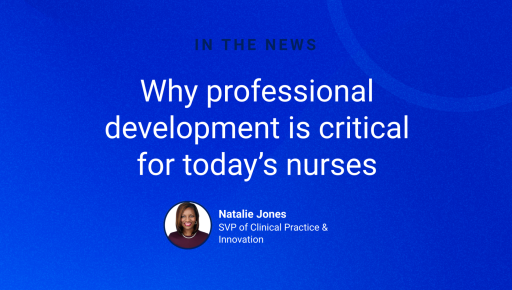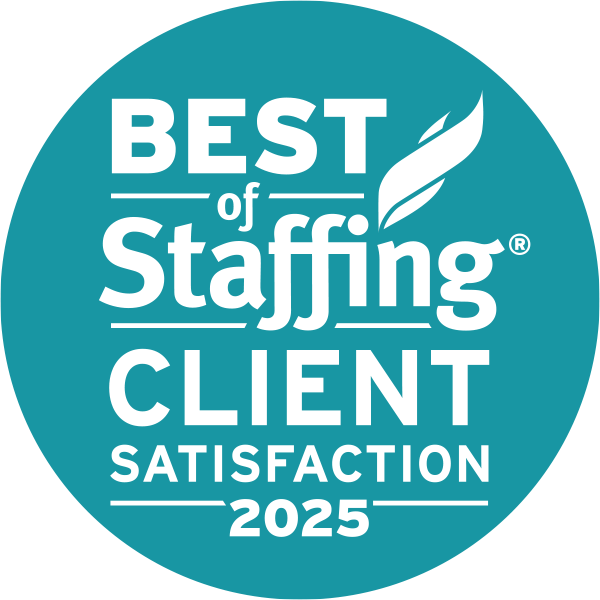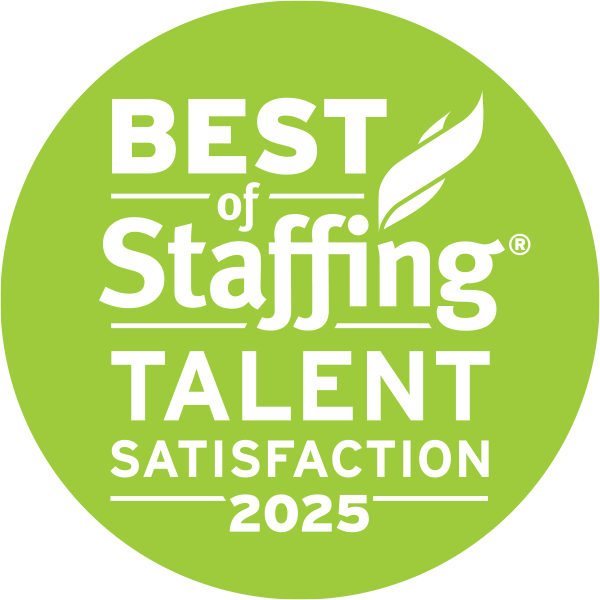Soft skills can impact every aspect of how a patient experiences their healthcare. While technical proficiency and medical knowledge are undoubtedly crucial, the ability to communicate effectively, collaborate seamlessly, and empathize with patients is equally vital.
In fact, research has shown that physician empathy can have a profound impact on patient outcomes. According to the research, "the way a doctor treats and communicates with a patient can trigger more stress or instill hope. Doctors themselves can have a placebo effect on the patient’s health or a nocebo effect."
This blog explores the multifaceted importance of soft skills as essential skills in the context of healthcare, emphasizing their relevance in fostering patient-centered care. It also delves into the evolving nature of healthcare work, incorporating the concept of remote healthcare jobs and its implications on the demand for soft skills.
Hard and Soft Skills Defined
Hard skills are specific, teachable abilities or knowledge that can be quantified and measured. These skills are often job-specific and are acquired through education, various training programs, or experience. Here are some examples of hard skills in healthcare:
- Medical Terminology: Understanding and using the specialized vocabulary and language used in healthcare settings.
- Patient Assessment: The ability to evaluate a patient's condition through physical examination, medical history, and diagnostic tests.
- Vital Signs Monitoring: Measuring and interpreting vital signs such as blood pressure, heart rate, respiratory rate, and temperature.
- Research Methods: Understanding and applying medical methodologies to unlock insights and advancement in patient care.
- Medication Administration: Accurately dispensing and administering medications to patients.
- Surgical Techniques: Proficiency in specific surgical procedures and techniques for various medical specialties.
On the other hand, soft skills, also known as interpersonal or people skills, are non-technical skills that enhance an individual's interactions, job performance, and career prospects. These skills are less tangible and more difficult to quantify but are equally, and some may argue, more important than hard skills.
While hard skills are necessary for performing specific tasks, strong, soft skills contribute to effective leadership, teamwork, communication, and overall professionalism.
Soft Skills Important for Healthcare Workers
Soft skills encompass a broad range of attributes that help people interact with others. In the healthcare sector, these skills go beyond mere pleasantries. They are the linchpin that binds together the intricate web of relationships between healthcare professionals, patients, and other stakeholders.
Soft skills such as interpersonal skills, communication, empathy and compassion, teamwork, adaptability, cultural competence, and conflict resolution enable healthcare professionals to work cohesively, addressing the dynamic and multifaceted nature of patient care.

Interpersonal Skills
Healthcare providers with strong interpersonal skills can create a supportive and trusting atmosphere, facilitating better understanding and collaboration. These skills are particularly crucial during challenging moments, as they enable anyone working in healthcare to navigate sensitive discussions with compassion and empathy. Furthermore, strong interpersonal skills enhance teamwork among healthcare staff, promoting a cohesive and collaborative health system. Ultimately, the cultivation of interpersonal skills is integral to delivering quality healthcare services and ensuring positive patient outcomes.
Effective Communication
One of the most critical soft skills in healthcare is effective communication. Healthcare professionals must convey complex medical information in a way that is easily understandable to patients, ensuring that they are well informed about their conditions, treatment options, and care plans. Strong communication and people skills foster trust between healthcare providers and patients, laying the foundation for a positive patient experience.
Empathy and Compassion
Empathy and compassion are the heart and soul of patient-centered care. They play an important role in patient engagement. The ability to communicate clearly and empathetically is crucial when interacting with patients and their families, ensuring they feel heard and understood. Soft skills such as empathy and compassion enable healthcare professionals to connect with patients on a human level, acknowledging their fears, concerns, and emotions. This not only enhances the quality of care but also contributes to the overall well-being of the patient.
Teamwork
Healthcare is inherently collaborative, requiring different professionals to work seamlessly. Different healthcare professionals, including doctors, nurses, technicians, and administrative staff, bring unique skills and perspectives to the table. By working collaboratively, they can leverage their collective expertise to address complex medical challenges, make informed decisions, and provide comprehensive and patient-centered care. Teamwork fosters open communication, enhances efficiency, and promotes a culture of continuous learning and improvement. In healthcare, where every decision can have profound implications, the synergy of a well-coordinated team is critical for achieving the highest standards of quality care.
Adaptability and Problem-Solving Skills
Adaptability and problem-solving skills are integral to success in the healthcare industry. Professionals who can quickly adjust to changes, think critically, and find innovative solutions contribute to the delivery of high-quality patient care in an ever-evolving field. Healthcare is subject to frequent changes in regulations, policies, and technologies. Healthcare professionals need to adapt quickly to new guidelines, procedures, and technological advancements to deliver quality care.
Additionally, patient needs and preferences can vary widely. Healthcare providers must be adaptable in tailoring their approach to different patients, considering cultural, linguistic, and individual differences. Addressing the unique challenges of each patient requires creative problem-solving. This might involve adjusting treatment plans, considering alternative therapies, or finding ways to improve patient compliance.
Cultural Competence
In an era of increasing diversity, cultural competence is one of the more crucial soft skills for healthcare professionals. Understanding and respecting cultural differences, including beliefs, values, and practices, is essential for building trust between healthcare providers and patients. It allows for more accurate diagnosis and treatment plans by considering the cultural context that may influence a patient's health decisions.
Moreover, cultural competency promotes effective communication, reducing the risk of misunderstandings and improving patient-provider relationships. In diverse communities, healthcare that acknowledges and embraces cultural nuances not only enhances the overall quality of care but also contributes to reducing health disparities and fostering more inclusive and equitable healthcare systems.
Conflict Resolution
Conflict resolution skills are of paramount importance in healthcare settings due to the intricate nature of patient care and collaboration among diverse healthcare professionals. Healthcare professionals with strong conflict resolution skills can collaboratively address challenges, find common ground, and maintain a focus on providing optimal patient care. Overall, these skills are essential for creating a supportive and collaborative healthcare environment that ultimately benefits both healthcare providers and the individuals receiving care.
In the fast-paced and high-pressure environment of healthcare, conflicts can arise from differences in opinions, communication breakdowns, or resource constraints. Effective conflict resolution not only ensures a harmonious work environment but also directly impacts patient outcomes. Healthcare teams must navigate complex situations, make critical decisions, and deliver seamless care. The ability to resolve conflicts efficiently promotes teamwork, enhances communication, and fosters a culture of mutual respect. This, in turn, contributes to improved patient safety and satisfaction.
The Changing Landscape: Remote Healthcare Jobs
According to the Harvard Business Review, the era of telemedicine is just beginning. With 89% of U.S. adults and 78% of adults around the world owning a smartphone, including those in medically underserved communities, remote healthcare can be a great equalizer. Virtual environments break down geographical barriers, providing patients with access to healthcare services regardless of their location. This is especially important for individuals in remote or underserved areas.
As information technology continues to advance, the healthcare sector is experiencing a paradigm shift, with remote work becoming a viable option for candidates for various roles. Telemedicine, remote patient monitoring, and virtual consultations are now integral parts of the healthcare system. This shift brings forth new challenges and opportunities, necessitating a reevaluation of the importance of soft skills in this evolving landscape.

Telemedicine and Communication
In a remote healthcare setting, effective communication takes on a new dimension. Healthcare professionals must now master the art and practice of conveying empathy and understanding through virtual channels. Soft skills that enable clear and compassionate communication become even more critical in a telemedicine context.
Empathetic communication in virtual healthcare not only ensures better patient satisfaction but also contributes to more accurate diagnoses and treatment plans by enabling a deeper understanding of the patient's emotions and concerns. In the absence of physical presence, the virtual bond created through empathy and feedback becomes a crucial component in delivering compassionate and effective healthcare services.
Patient Engagement in a Virtual Environment
Patient engagement in a virtual environment is increasingly recognized as a crucial component of modern healthcare. Virtual platforms facilitate timely communication between patients and healthcare providers. Patients can easily ask questions, seek clarifications, and discuss concerns, fostering a more collaborative and open relationship with their healthcare team.
However, maintaining patient engagement becomes challenging when healthcare interactions occur remotely. Soft skills play a pivotal role in keeping patients connected and motivated to actively participate in their care. This requires healthcare professionals to leverage communication skills and empathy through digital platforms. Soft skills can help foster a sense of connection by actively listening to patients, acknowledging their concerns, and maintaining a compassionate and empathetic tone.
Remote Collaboration and Team Dynamics
The collaborative nature of healthcare does not diminish in a remote work environment. The success of remote collaboration in healthcare relies heavily on effective team dynamics. Soft skills related to virtual collaboration, effective use of digital communication tools, and maintaining cohesion become paramount. Clear communication channels, trust among colleagues, and a shared understanding of roles and responsibilities are crucial for ensuring optimal patient outcomes.
Professionals need to adapt their interpersonal skills to the nuances of online collaboration for efficient remote work. Healthcare teams must adapt to the virtual environment by fostering a culture and process of collaboration, leveraging digital tools for efficient communication, and addressing potential challenges associated with remote work, such as time zone differences.
Adapting to Cultural Differences in Virtual Care
With the potential for healthcare professionals to interact with patients from diverse geographic locations, the importance of cultural competence is heightened in remote healthcare. Soft skills that facilitate understanding and respect for cultural differences are essential for providing inclusive and effective virtual care.
Sensitivity to language preferences, understanding cultural attitudes towards health, and acknowledging varying beliefs about illness and treatment are essential. Additionally, adapting communication styles to suit cultural norms and being aware of potential disparities in healthcare access is crucial for building trust and providing excellent and equitable patient care.

Soft Skills Play an Important Role in Taking Care to Higher Levels Locally and Remotely
The importance of soft skills in healthcare jobs is undeniable, as they form the backbone of patient-centered care and effective collaboration among healthcare professionals. Soft skills complement hard skills by contributing significantly to a healthcare professional's ability to deliver patient-centered care, collaborate within a team, and navigate the complex and dynamic healthcare environment.
As the healthcare landscape evolves to incorporate more remote work, these soft skills take on new dimensions, influencing the quality of virtual patient interactions and remote team dynamics.
Healthcare professionals and employers must recognize the evolving nature of their field and focus on soft skill development and refinement to meet the demands of a changing work environment. Ultimately, the integration of soft skills in healthcare jobs, whether locally provided on-site or remotely, ensures that patients receive not only technologically advanced care but also compassionate and empathetic services that address their holistic well-being.
Is your organization looking for medical or healthcare talent with soft skills? Do you want to showcase your soft skills to healthcare employers? Contact Prolink today.









